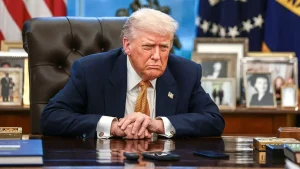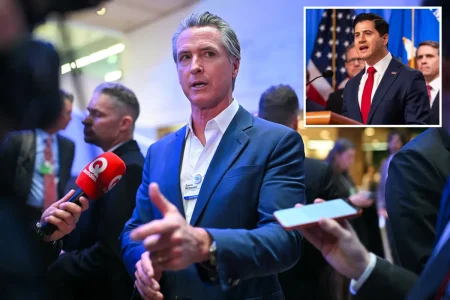Jimmy Kimmel’s Opening Words: A Tale of Two Perspectives
In a striking display of how comedy and politics continue to intersect in today’s media landscape, Jimmy Kimmel’s opening monologue at a recent event sparked notably divided reactions across the entertainment industry and political spectrum. On one side, established Hollywood figures like Ben Stiller offered enthusiastic praise, with the renowned actor and comedian describing Kimmel’s words as nothing short of “brilliant.” Stiller’s endorsement represented the sentiment of many in the entertainment community who appreciated Kimmel’s approach, delivery, and messaging, viewing the monologue as a successful blend of humor and pointed commentary that resonated with their values and perspectives.
However, as is increasingly common in our polarized cultural environment, the reception wasn’t universally positive. Various commentators and viewers from conservative circles questioned Kimmel’s sincerity and intentions behind the words. These critics suggested that beneath the polished delivery might lie calculated messaging rather than genuine expression, highlighting the growing skepticism many Americans feel toward media figures who touch on divisive topics. This contrasting reception demonstrates how the same words can be interpreted through dramatically different lenses depending on one’s political alignment and preexisting views of the speaker.
The divergent reactions to Kimmel’s monologue reflect a broader phenomenon in American entertainment and media consumption, where audiences increasingly seek affirmation of their existing beliefs rather than exposure to challenging or diverse perspectives. For figures like Stiller and others in Hollywood’s predominantly progressive environment, Kimmel’s approach likely reinforced shared values and worldviews, making his words resonate as insightful and compelling. Meanwhile, those who approach mainstream entertainment with greater skepticism found reasons to question not just the content but the authenticity behind it, suggesting a performance tailored to please specific audiences rather than communicate honest personal conviction.
This episode serves as a microcosm of how entertainment and political commentary have become increasingly intertwined in American cultural discourse. Where late-night hosts and comedians once might have aimed for broad appeal with relatively nonpartisan humor, figures like Kimmel now navigate a landscape where virtually any public statement can become fodder for political interpretation and division. The challenge for these entertainers grows increasingly complex: how to remain authentic, engage audiences, and maintain artistic integrity while aware that every word will be scrutinized through political lenses by different segments of the audience.
What makes this particular instance noteworthy is not merely the predictable division in responses, but how it highlights the evolution of celebrity influence in political discourse. When an established actor like Stiller publicly endorses another entertainer’s political messaging as “brilliant,” it reinforces the notion that Hollywood figures serve not just as entertainers but as influential voices shaping public opinion. Simultaneously, the skepticism from conservative viewers underscores the growing distrust of celebrity political commentary among certain segments of the population who perceive such messages as disconnected from everyday American experiences and concerns.
Ultimately, the contrasting receptions to Kimmel’s monologue demonstrate that in today’s media environment, the impact of public figures’ words often has less to do with the actual content and more with the preexisting relationships between speaker and audience. Those who already appreciate Kimmel’s perspective found confirmation of his talent and insight, while those predisposed to skepticism of mainstream entertainment found evidence supporting their suspicions. As Americans continue to consume media in increasingly separate spheres, these divergent interpretations of the same event will likely become more pronounced, reflecting not just disagreements about comedy or entertainment, but fundamental differences in how we understand truth, authenticity, and the proper role of public figures in our national conversation.







